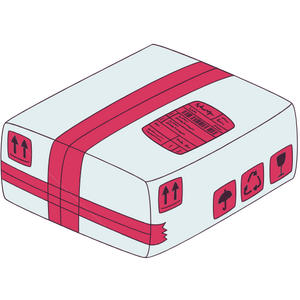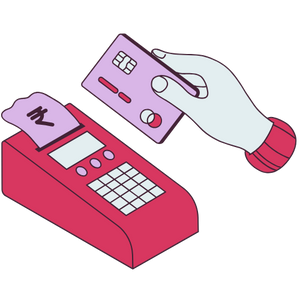Urinary tract infections: how to treat and prevent them

Have you ever felt a sharp pain when you go to the bathroom? Like a burning sensation? A sudden urge to pee? A urinary tract infection or cystitis is a condition that affects many teenage girls, young women and older women alike!
How can you recognize a urinary tract infection? How is it treated and, above all, can it be prevented? Which treatments are recommended, which antibiotics? Are there alternative solutions? Is the famous cranberry really effective? What complications can occur?
Acute cystitis, recurrent cystitis, bacteria spreading to the kidneys, acute pyelonephritis, urinary stones, kidney stones – let’s take a detailed look at urinary tract infections.
Louloucup gives you all the keys to enjoying a wonderful summer while taking care of yourself and your health. Here, we answer all your questions about urinary tract infections as simply as possible.
What is a urinary tract infection?
Urinary tract infections are common infections of the urinary system in women. What’s behind this bacterial infection? A nasty bacterium that settles in your bladder where it absolutely doesn’t belong.
Because it’s a bacterium and not a virus, an antibiotic treatment is needed to get rid of it. What matters most is taking the antibiotic that best targets that specific bacterium. Because yes, not all antibiotics work on all bacteria.
This infection can affect different parts of the urinary tract:
- the bladder,
- the urethra,
- the kidneys,
- or even the ureters.
In the simplest and least serious case, acute cystitis is confined to the bladder. When a person is not treated quickly enough, or when the antibiotic is not suitable, the bacteria have time to migrate and spread.
They travel up from the bladder to other parts of the urinary tract. This is called urethritis when the bacteria lodge in the urethra, and pyelonephritis when the infection reaches the kidneys.
What are the symptoms of a urinary tract infection?
- a very strong urge to urinate,
- once you’re on the toilet, despite the urge, urination happens in very small amounts,
- urine may have a bad smell and appear cloudy,
- a more or less intense burning sensation when you pee,
- when you pee, it can be hard to stay still because the burning is so intense,
- in some cases, fever may appear,
- severe fatigue (which is completely normal—your body is under attack and fighting back),
- pain in the lower abdomen (pelvic pain),
- pain in the lower back (lumbar pain),
- but also blood in the urine.
Spotlight on three Louloucup period panties
How do you treat a urinary tract infection?
Single-dose or one-shot antibiotic
The prescribed antibiotic obviously needs to be effective against the specific bacteria that has settled in your bladder or urethra. The most common situation today is that your doctor prescribes a single-dose antibiotic, a broad-spectrum one-shot treatment. Most often, this is amoxicillin.
If the infection hasn’t had time to take hold, a single-dose treatment is usually enough. This one-shot antibiotic is very convenient and highly effective. It’s often prescribed even before lab results come back and, in many cases, it frees many women from the burning pain of cystitis.
Alongside this, we strongly recommend that you drink at least two litres of water a day in the days following the infection. It’s important to go to the toilet frequently to help “flush out” the infection.
Do you often get cystitis, do you suffer from recurrent urinary tract infections? Do you know your body well and recognize the signs? To avoid suffering for too long, don’t hesitate to book an online consultation to save precious time and get your prescription quickly.
Urine test or midstream urine culture
A urine test is very useful if cystitis is suspected. A cytobacteriological examination mainly helps identify the bacteria responsible for your cystitis and, if needed, prescribe a more effective antibiotic. Your GP will therefore prescribe a urine culture (ECBU).
During your appointment, they may first perform a urine dipstick test to confirm the urinary infection. This test detects leukocytes and nitrites, which confirm the presence of infection.
A urine culture (ECBU) detects the germs present in your urine. Using the urine sample you provide, the lab can perform cytology (study of the cells) and bacteriology (search for bacteria). A urine culture is therefore essential, especially if the infection shows signs of resistance.
For the most common cystitis, the bacteria responsible is Escherichia coli. This bacterium causes inflammation of the bladder but also of the urethra (infectious urethritis).
A longer treatment in some cases
Sometimes a single-dose treatment isn’t enough. The one-off dose is prescribed as first-line treatment for uncomplicated acute cystitis. Unfortunately, the bacteria can be harder to eliminate.
The burning when you pee has disappeared but moved to your lower abdomen or your back, around your kidneys. You may have a fever and feel very tired. The bacteria may have travelled up into one of your kidneys.
Your urinary tract infection is then more severe and must be taken seriously. An in-person visit to a doctor and a urine culture are essential. A suitable, longer antibiotic treatment (10 days or more) will then be started.
We strongly recommend that throughout your treatment you drink plenty of fluids (daily, regular hydration is essential for your health) and don’t hold back from going to the toilet. This helps flush out the bacteria more quickly. Water, herbal tea and even cranberry juice (why not!) – feel free to vary your drinks so you don’t get bored.
A cystitis that is not treated, or poorly treated, can worsen and turn into pyelonephritis. The bladder infection then travels up to the kidneys.
Prevention: are there ways to avoid urinary tract infections?
Here are some helpful tips and tricks to avoid recurrent urinary tract infections:
-
Stay well hydrated throughout the day. It’s important to keep your kidneys working and to go to the toilet regularly. The kidneys are the organs that filter urine. Don’t hesitate to drink diuretic beverages to help: apple juice or cranberry juice, for example.
- Get into the habit of always going to the toilet after sex. Urinating after intercourse helps “rinse” your intimate flora. After sex, your vaginal flora can become imbalanced. Its natural defences are weakened and bacteria that are usually expelled can manage to make their way in.
- Avoid keeping a wet swimsuit on after the pool or the beach. Prolonged contact between damp fabric and your intimate area can encourage bacterial growth (maceration, humidity).
- Avoid clothes that are too tight and stop your intimate area from breathing; skinny jeans or tight trousers that dig into the crotch should be avoided if you’re prone to urinary infections.
- Avoid sexual intercourse in the sea, in a swimming pool or in natural bodies of water; your vaginal flora is delicate and can be weakened by this environment, making it less resistant to potential bacteria.
-
Clean your vulva and intimate area properly without overdoing it. It may sound strange, but washing more often will only weaken your **intimate flora**. Find a balance and stick to it. Don’t overuse hygiene products packed with chemical ingredients, perfume or alcohol. Prefer plain water or a gentle, natural soap with a neutral pH.
- When you’re on the toilet, always wipe from front to back! This is important to prevent the bacteria around your anus from coming into contact with your vagina and bladder.
- One last tip: never hold back from going to the toilet. Ever. Go as soon as you feel the need.
Louloucup has explored many topics on women's health. Feel free to check out our blog for more information!
 Did you like this article? Pin it!
Did you like this article? Pin it!


































